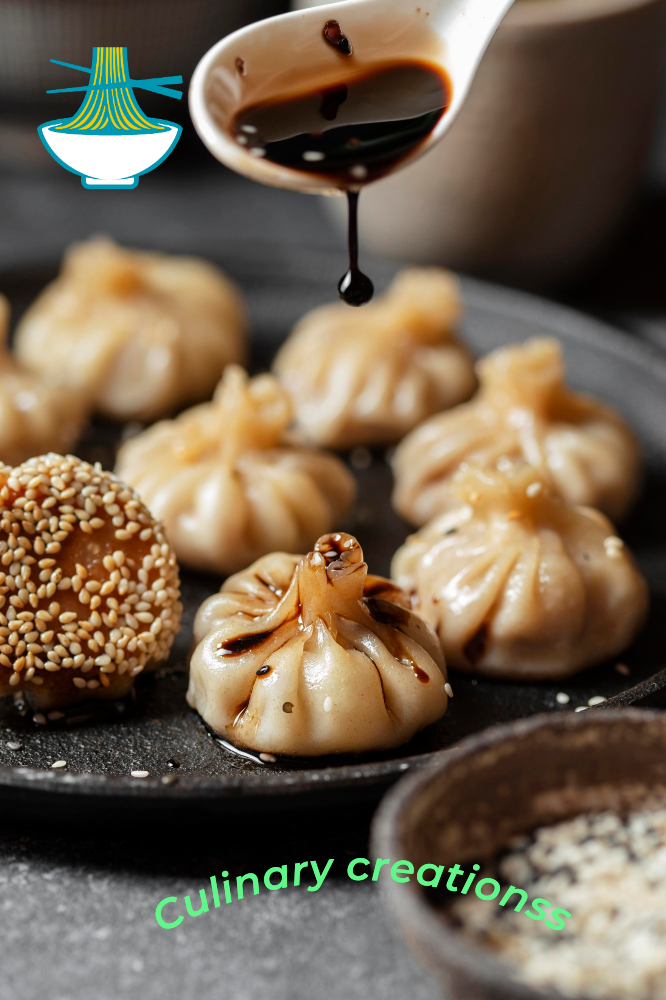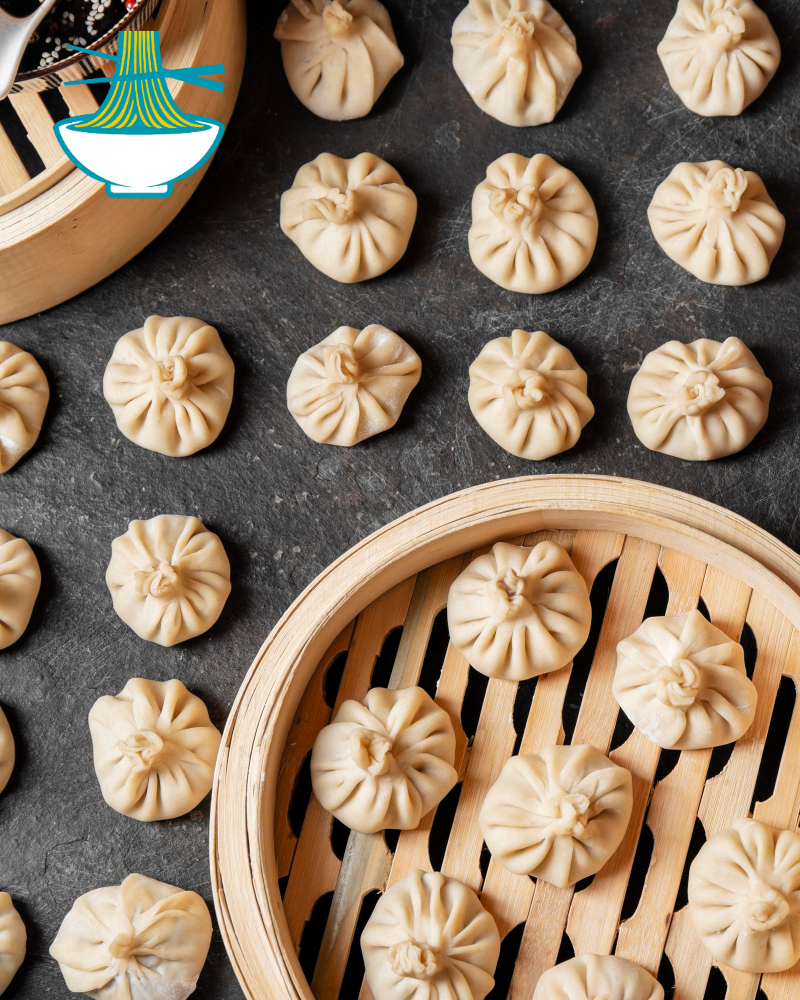Welcome to the world of dim sum, a beloved part of Hong Kong's culinary heritage. In this guide, we'll take you on a culinary journey through some must-try dim sum items. From delicate shrimp dumplings to savory pork buns, we'll provide step-by-step instructions on how to create these delectable dishes in your own kitchen. Explore the essence of Hong Kong's culinary culture with our easy-to-follow recipes and cooking tips.

Dim Sum: A Quintessential Part of Hong Kong's Culinary Culture
Must-Try Dim Sum Items
Har Gow (Shrimp Dumplings):
Ingredients:
- Shrimp (peeled and deveined)
- Starch-based dumpling wrappers
- Seasonings (salt, sugar, white pepper)
- Cornstarch (for dusting)
Preparation:
- Finely chop the shrimp and mix with seasonings.
- Spoon a small amount of shrimp mixture onto a dumpling wrapper.
- Fold the wrapper in half to create a half-moon shape, sealing the edges.
- Steam for 6-8 minutes until translucent.
Siu Mai (Pork Dumplings):
Ingredients:
- Ground pork
- Shrimp
- Shiitake mushrooms
- Seasonings (soy sauce, sesame oil, sugar)
- Wonton wrappers
Preparation:
- Mix ground pork with seasonings.
- Place a spoonful of pork mixture on a wonton wrapper.
- Top with a shrimp and a small piece of mushroom.
- Fold the wrapper around the filling, leaving the top open.
- Steam for 10-12 minutes.
Char Siu Bao (Barbecue Pork Buns):
Ingredients:
- Char siu (barbecue pork)
- Bun dough
- Hoisin sauce
Preparation:
- Slice the char siu into small pieces.
- Flatten bun dough into circles, place char siu in the center, and seal the bun.
- Steam for 12-15 minutes.
- Serve with hoisin sauce.
Cheong Fun (Rice Noodle Rolls):
Ingredients:
- Rice noodle sheets
- Fillings (shrimp, char siu, vegetables)
- Soy sauce
Preparation:
- Lay out the rice noodle sheets.
- Place the fillings on top.
- Roll the sheets into cylinders and steam for 8-10 minutes.
- Drizzle with soy sauce before serving.

Nutrition Value:
Shrimp (peeled and deveined):
- Calories: Approximately 84 calories per 3-ounce (85g) serving
- Carbs: 0g
- Protein: Approximately 20g
- Fat: Approximately 0.5g
- Sodium: Approximately 190mg
Benefit: High in protein, low in calories, and rich in omega-3 fatty acids for heart health.
Starch-based dumpling wrappers:
- Calories: Approximately 20-30 calories per wrapper (varies by size)
- Carbs: Approximately 4-6g
- Protein: Approximately 1-2g
- Fat: Approximately 0g
- Sodium: Varies
Benefit: Provide energy from carbohydrates, ideal for pairing with protein-rich fillings.
Seasonings (salt, sugar, white pepper):
- Calories: These seasonings are usually used in small amounts and contribute minimal calories, typically less than 5 calories per teaspoon.
- Carbs, protein, fat, and sodium are also minimal when used in small amounts.
Benefit:
Salt:Essential for fluid balance and muscle function, but should be consumed in moderation.
Sugar: Quick energy source but should be limited for a balanced diet.
White pepper: Contains antioxidants and may aid in digestion and metabolism.
Cornstarch (for dusting):
- Calories: Approximately 30 calories per tablespoon
- Carbs: Approximately 7g
- Protein: Approximately 0g
- Fat: Approximately 0g
- Sodium: Varies (typically very low)
Benefit: Gluten-free thickening agent, adds texture to sauces and fillings.
Ground pork:
- Calories: Approximately 70 calories per 2-ounce (57g) serving
- Carbs: 0g
- Protein: Approximately 10g
- Fat: Approximately 3g
- Sodium: Approximately 25mg
Benefit: Rich in protein, B vitamins, and essential minerals like zinc and iron.
Shiitake mushrooms:
- Calories: Approximately 6 calories per 3-ounce (85g) serving
- Carbs: Approximately 1g
- Protein: Approximately 1g
- Fat: Approximately 0g
- Sodium: Approximately 1mg
Benefit: Boost immunity and provide anti-inflammatory benefits, rich in vitamins and minerals.
Wonton wrappers:
- Calories: Approximately 20-30 calories per wrapper (varies by size)
- Carbs: Approximately 4-6g
- Protein: Approximately 1-2g
- Fat: Approximately 0g
- Sodium: Varies
Benefit: Provide carbohydrates and serve as a versatile base for fillings.
Char siu (barbecue pork):
- Calories: Approximately 120-150 calories per 3-ounce (85g) serving
- Carbs: Approximately 10-15g
- Protein: Approximately 10-15g
- Fat: Approximately 4-7g
- Sodium: Approximately 450-600mg
Benefit: Flavorful source of protein with a mix of sweet and savory tastes.
Bun dough:
- Calories: Varies depending on the type and size of the bun dough, typically ranging from 80-150 calories per bun
- Carbs, protein, fat, and sodium content vary based on the specific recipe and ingredients used.
Benefit: Provides energy through carbohydrates and pairs well with various fillings.
Hoisin sauce:
- Calories: Approximately 35-40 calories per 2-tablespoon serving
- Carbs: Approximately 8-10g
- Protein: Approximately 1g
- Fat: Approximately 0g
- Sodium: Approximately 500-600mg
Benefit: Adds flavor with a sweet and savory profile, contains antioxidants from soybeans.
Rice noodle sheets:
- Calories: Approximately 30-40 calories per 3-ounce (85g) serving
- Carbs: Approximately 7-9g
- Protein: Approximately 1-2g
- Fat: Approximately 0g
- Sodium: Approximately 5-10mg
Benefit: Gluten-free carbohydrate source, ideal for light and easy-to-digest meals.
Fillings (shrimp, char siu, vegetables):
- Calories, carbs, protein, fat, and sodium content will vary depending on the specific ingredients and proportions used in the fillings.
- Benefit: Vegetable: Rich in vitamins, minerals, and fiber, promoting overall health and digestion.
Soy sauce:
- Calories: Approximately 8-10 calories per tablespoon
- Carbs: Approximately 1-2g
- Protein: Approximately 1g
- Fat: Approximately 0g
- Sodium: Approximately 900-1000mg per tablespoon
Benefit: Enhances flavor, contains antioxidants, but should be used in moderation due to sodium content

These detailed instructions can help individuals recreate these classic dim sum dishes at home. It's important to note that preparing dim sum from scratch may require some practice, especially in handling the wrappers and achieving the desired texture.


Comments